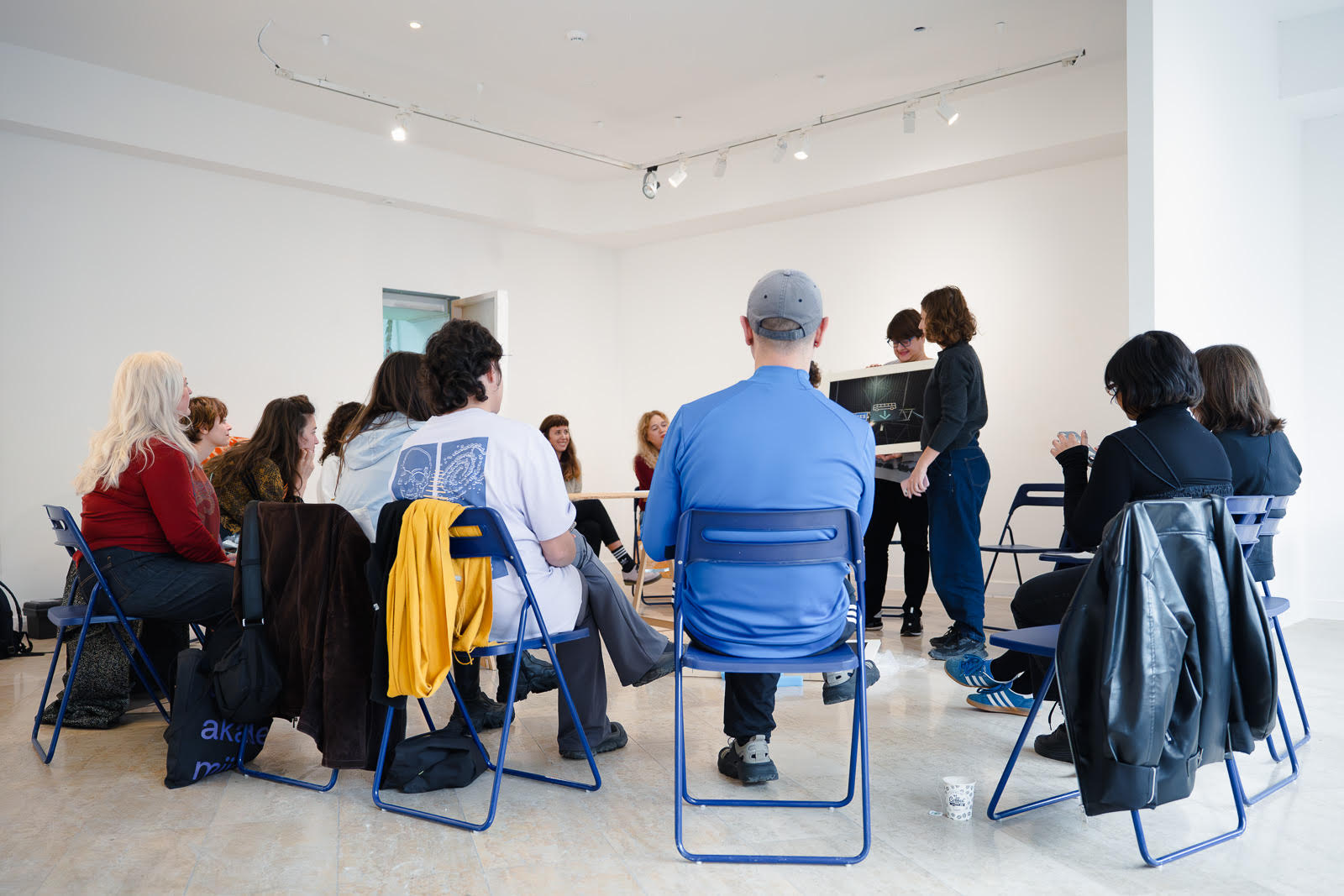I’m interested in the possibilities of online space, especially the way it provides an opportunity for synchronous but geographically distributed co-presence - basically sharing virtual space with other people, whilst at the same time remaining in different locations. In a way this small paradox is the core, the essence of online exchange and it’s interesting to me to treat the paradox as something that one can explicitly acknowledge and explore. Conducting workshops, discussions and artistic collaboration online in this way I’m interested in the exploring the dual nature of the space - the fact that we can ‘lean in’ to the digital environment, focus on each other, listen, communicate - and the fact that in another moment we can ‘lean back’ from the screen, attend to things in our real spaces, look out of the window, converse with other people in real space, move around the room, go find a book, draw, make notes etc. Getting participants to tune to these possibilities is a way for me to help them understand where they are, how they are connected (and disconnected), the different ways of exchanging that the environment can frame.
I tend to work with simple prompts - frames for improvisation, experiments. I’ll propose something to the group, we’ll play/perform/experiment for a while and then we’ll discuss it… much as we might in a regular workshop, in physical space. The prompts I use allow freedom and creative space for individuals, but they also impose a level of restriction which serves to cohere the work to some degree. The aim is to make an experience that’s unpredictable, open, free but which nonetheless hangs together compositionally in ways that we can begin to identify, discuss and nuance.

Another important thing for me regards knowledge transfer is to to think about it in board terms. I'm interested in what the group has to offer, what people bring to the table. It’s about listening, about opening to the unique possibilities of a particular encounter. Only here, only now, only in this particular session, are this particular group of people present. What we can do, what we can bring to and learn from each other is unique to this situation and everyone is a part of that. That’s my understanding of any knowledge exchange situation and it’s as true for online as it is for anything else.
-
Inside the academy pedagogical approaches have become more and more instrumental. It’s about constructing courses that are designed to deliver specific learning objectives in as frictionless way as possible. There’s less and less room for the experiment, or for the unknown. The leap in the dark.
For me the attraction of art practice as an influence or additional factor in pedagogy is that it can re-introduce ideas of uncertainty, disruption and discovery. Through approaches that come from pedagogy we can (I think) turn away from the market (of ideas) and the marketplace towards what I would think of as more genuine research, dialogue and knowledge exchange.

-
I’d like the formal education system to pick up on the ideas about openness and experiment I am referring to above. I don’t think that’s too likely though because the formal education system is so massively controlled by the market now, and by management and institutional structures that are built on scale, on a particular short-term relations to the labour market and the idea of research, and to corporate economics. It’s more or less catastrophic. The structures are too big, the relation to the students is too utilitarian and the relation to market, government and the labour market is too servile. The informal (and to a degree independent) education sector is more nimble, more versatile and free of the many of the supposed obligations of the formal system. It’s easy to imagine that in the future the best students - the best artists, the most creative and critical thinkers - will come from outside the formal sector. Not that there aren’t smart people working and studying in the formal system of course - there are - but the system itself is slowly but surely making it harder and harder to operate meaningfully there.
-
Participation of Tim Etchells is a part of i-Portunus Houses pilot scheme. The i-Portunus Houses pilot scheme is implemented, on behalf of the European Commission, by a consortium of organisations that have been pioneers of European cultural mobility programmes themselves. Coordinated by the European Cultural Foundation (Amsterdam), the i-Portunus Houses consortium involves MitOst (Berlin) as main mobility implementer and the Kultura Nova Foundation (Zagreb) as lead in evaluation and analysis.



